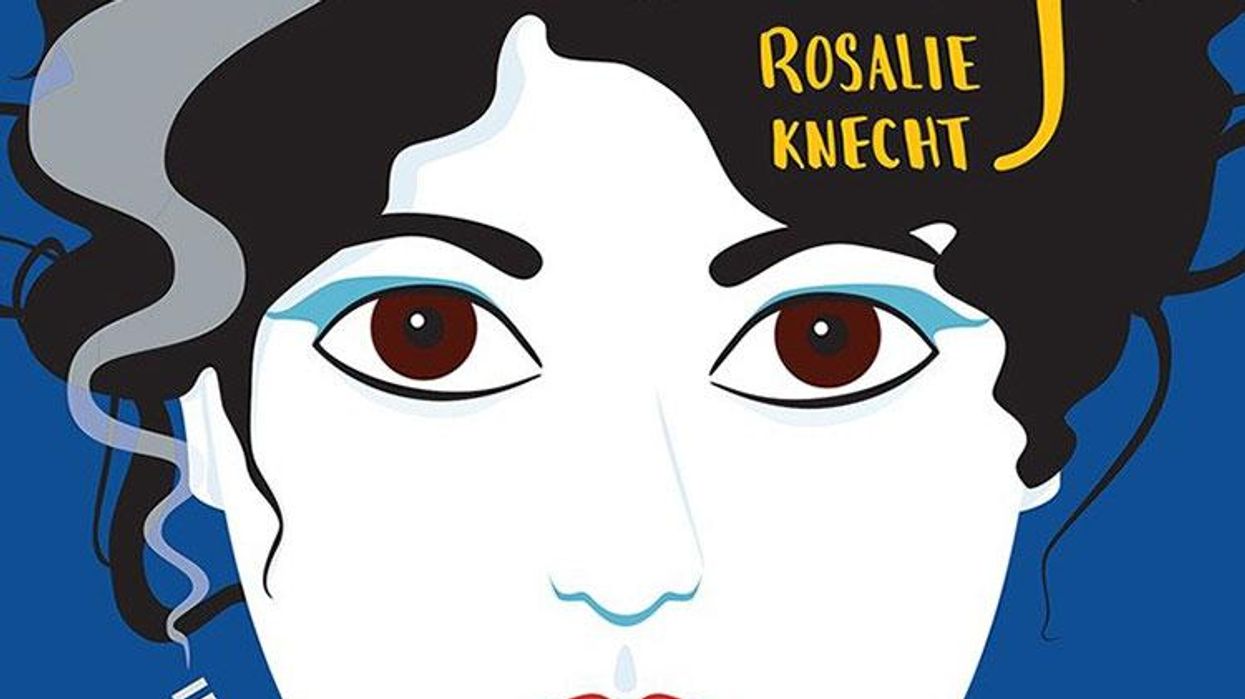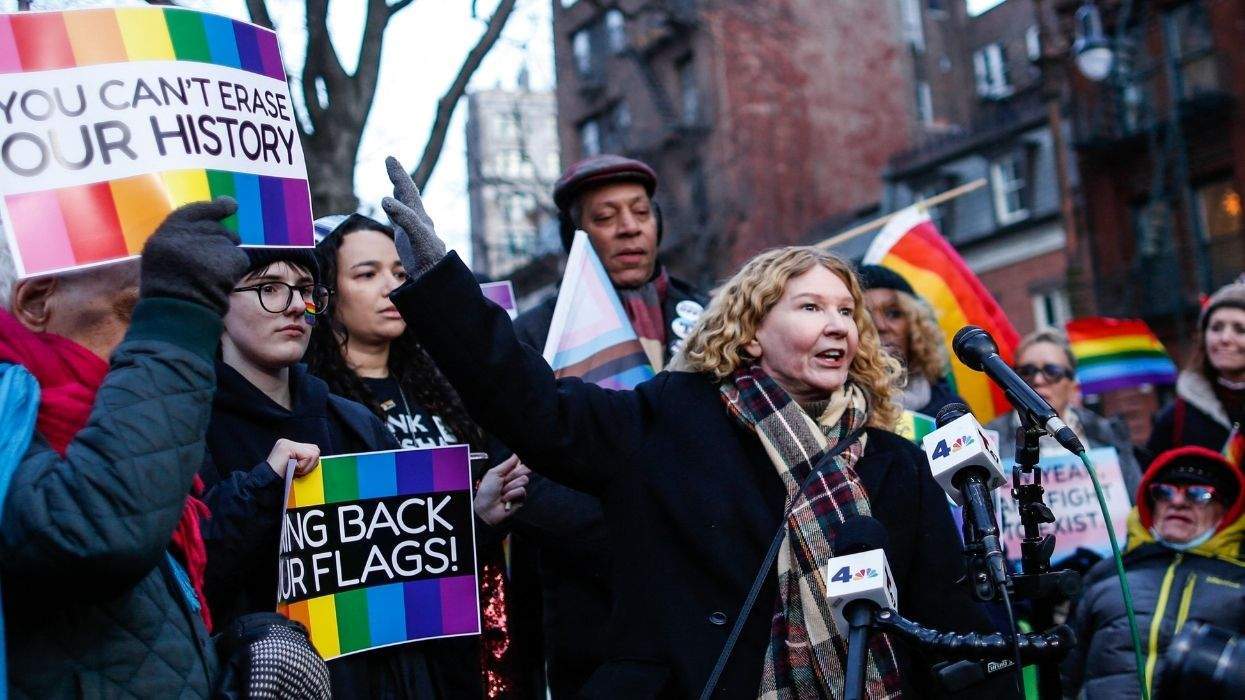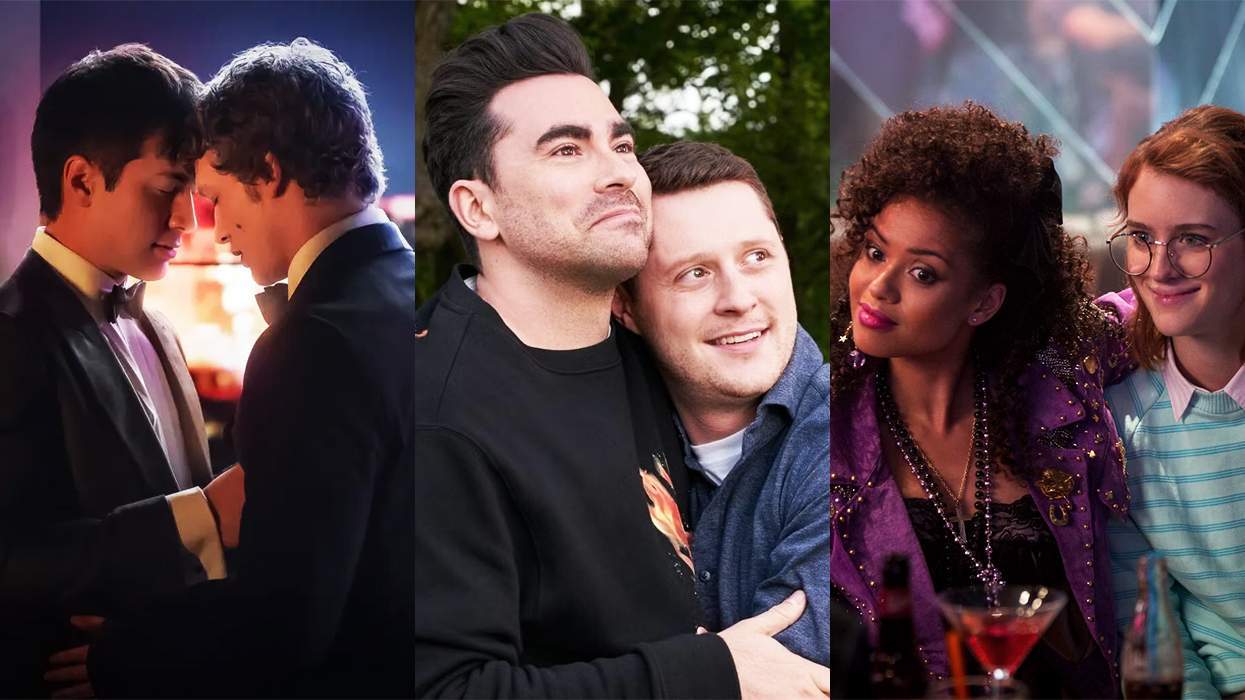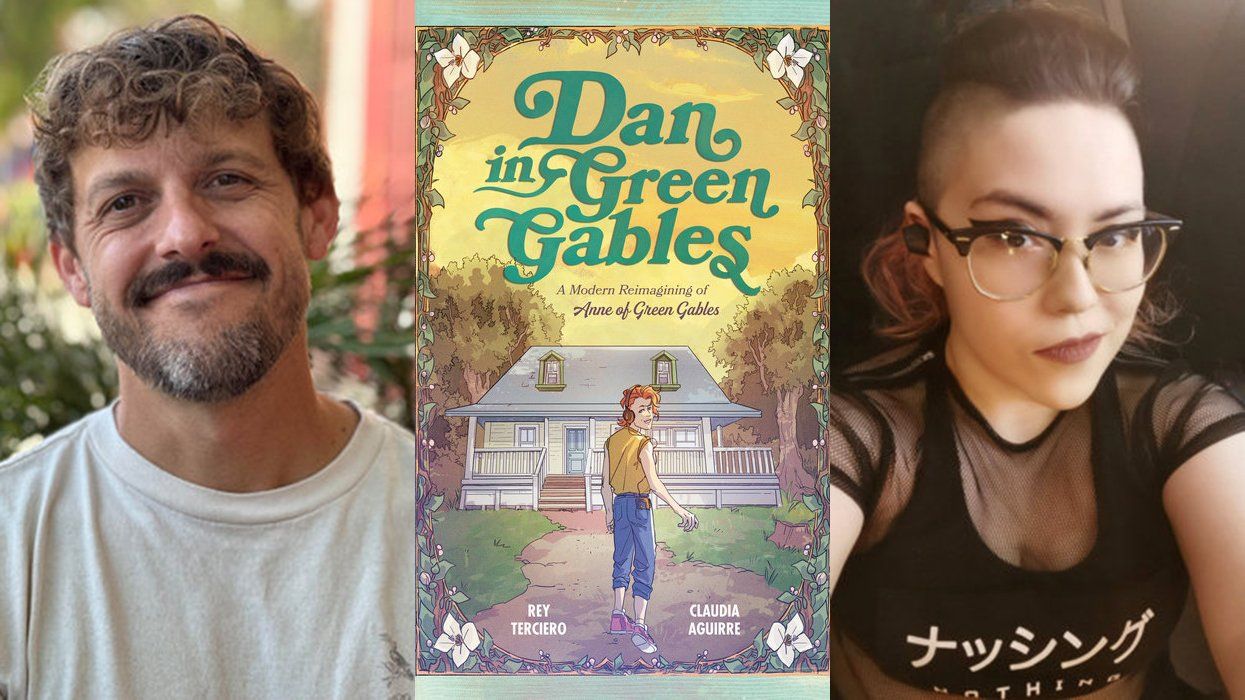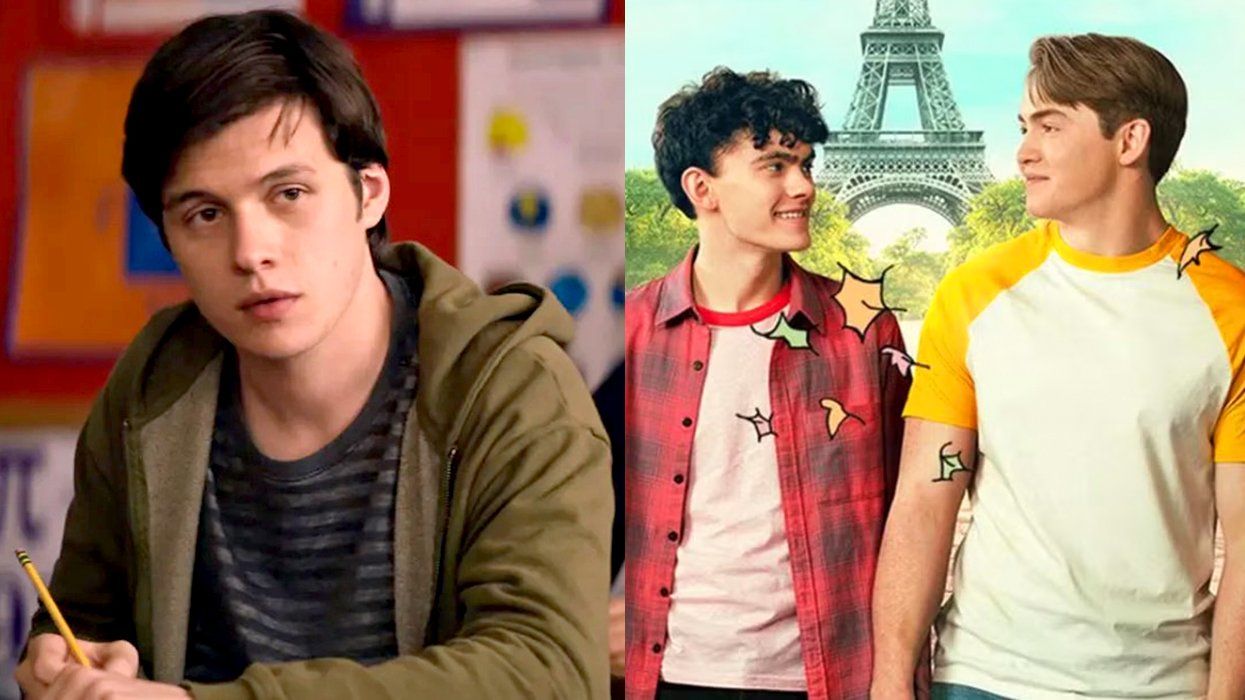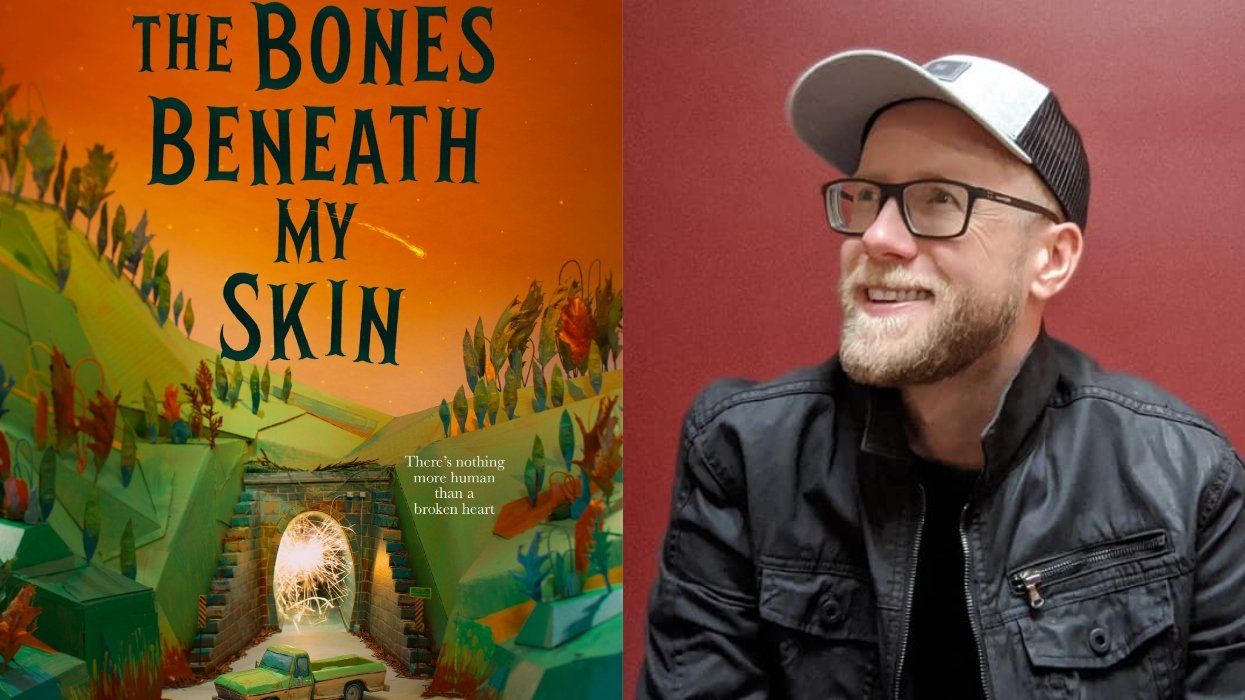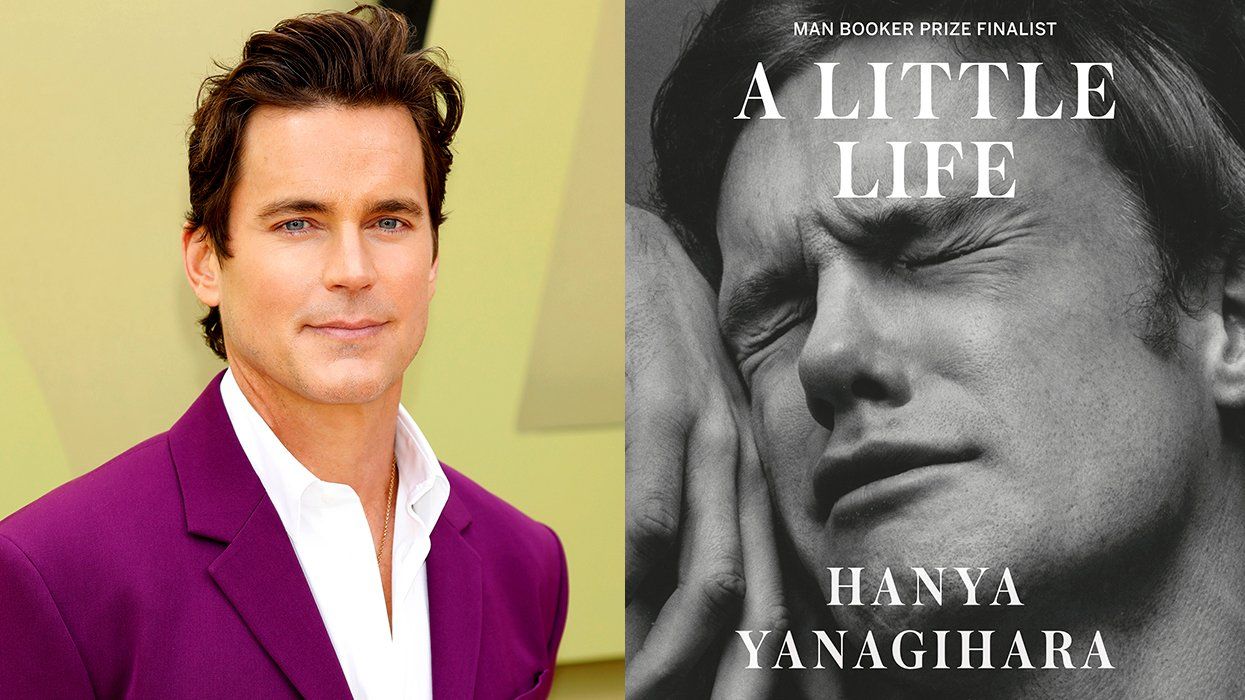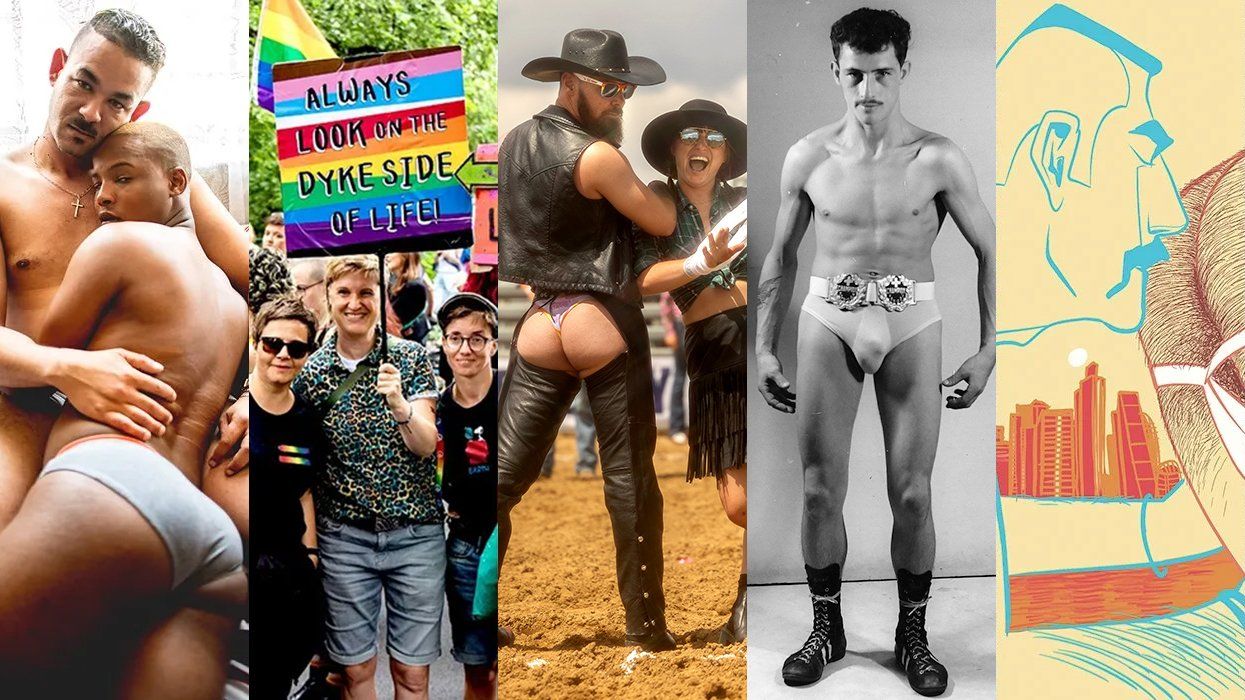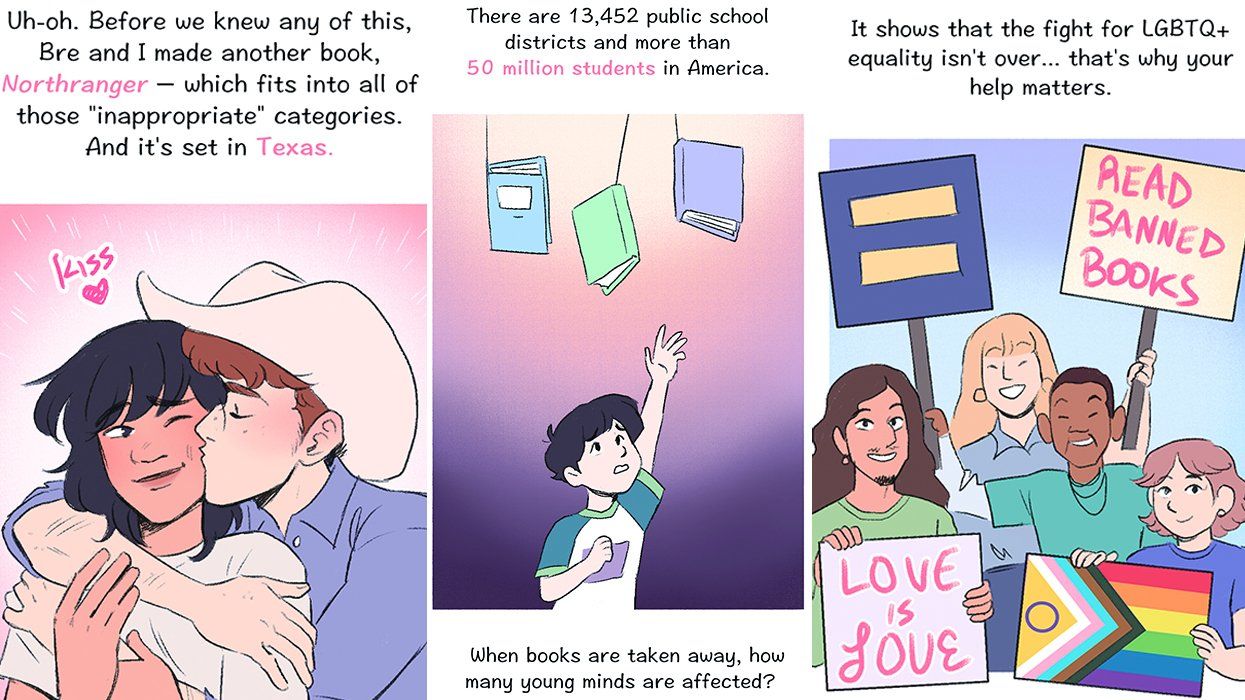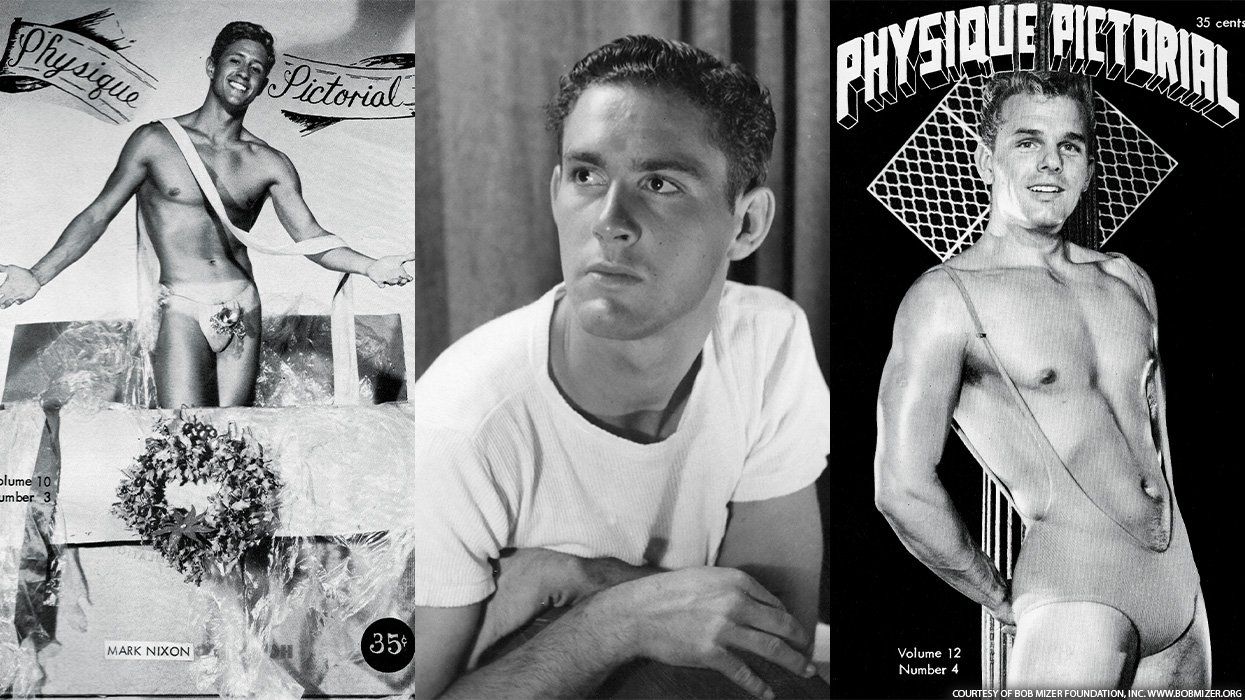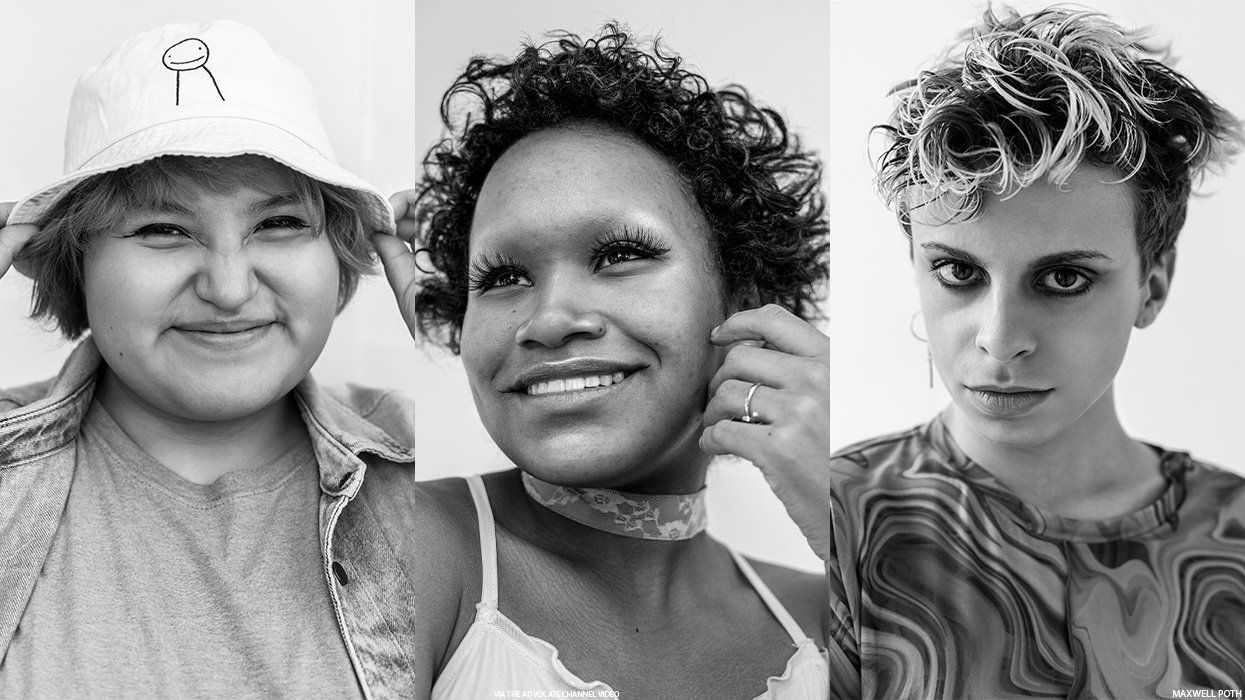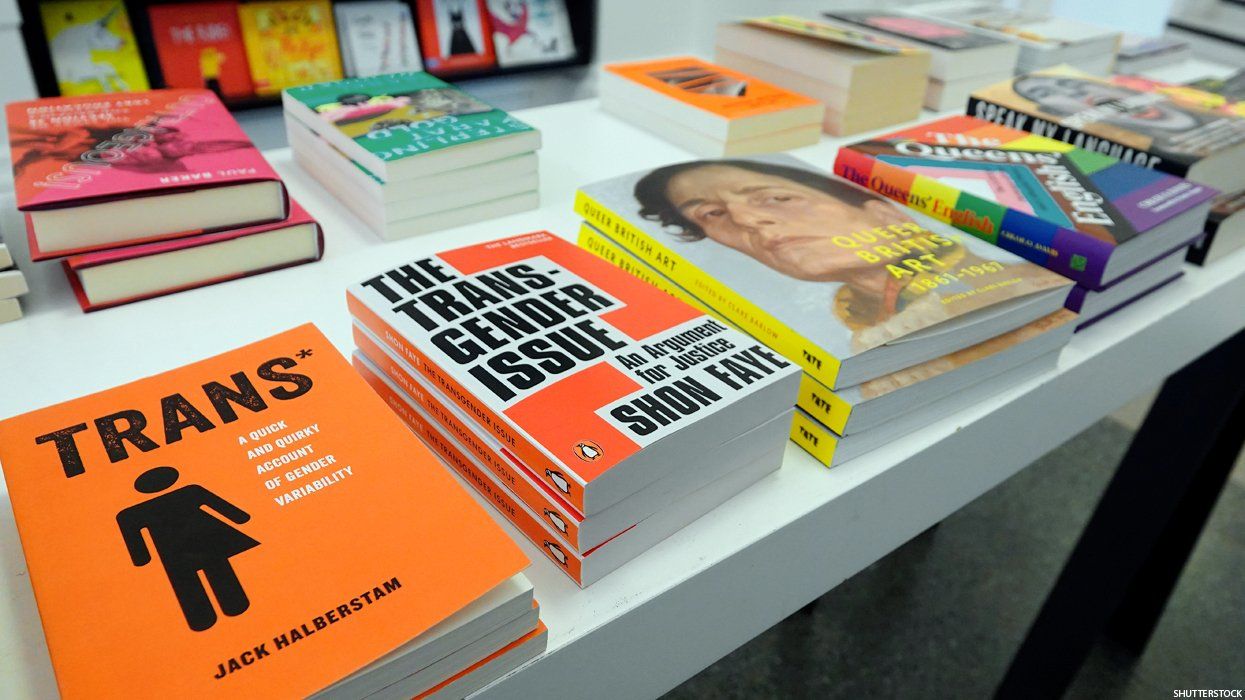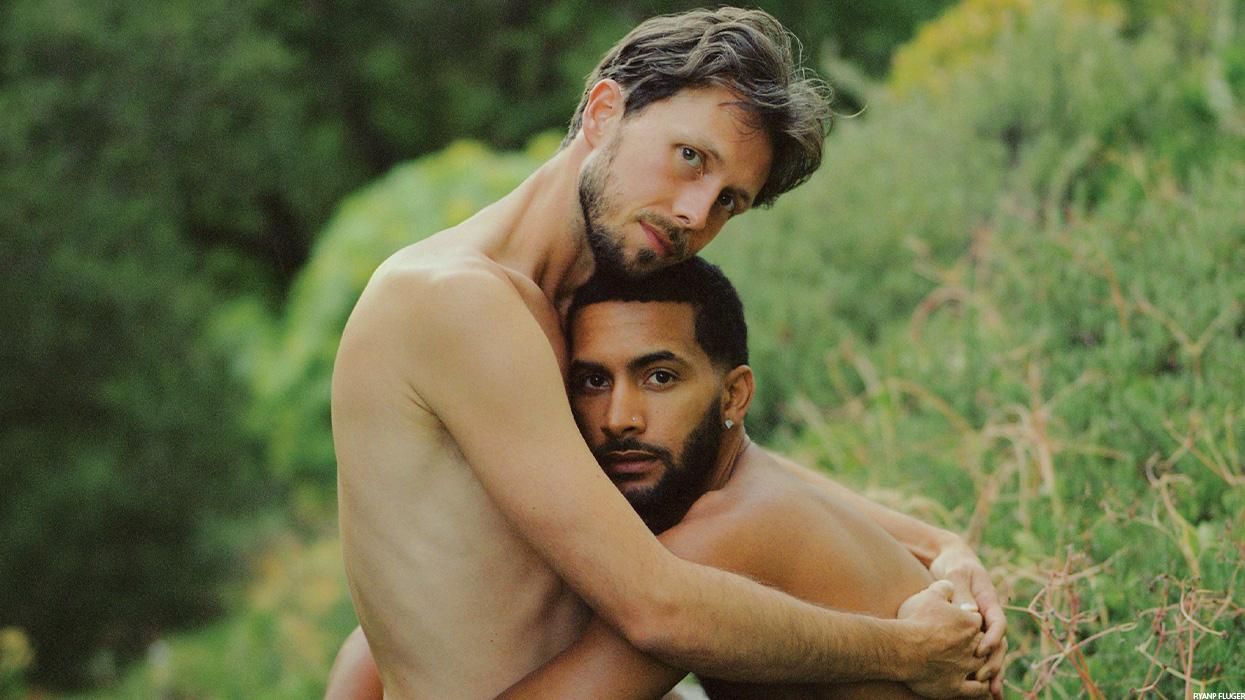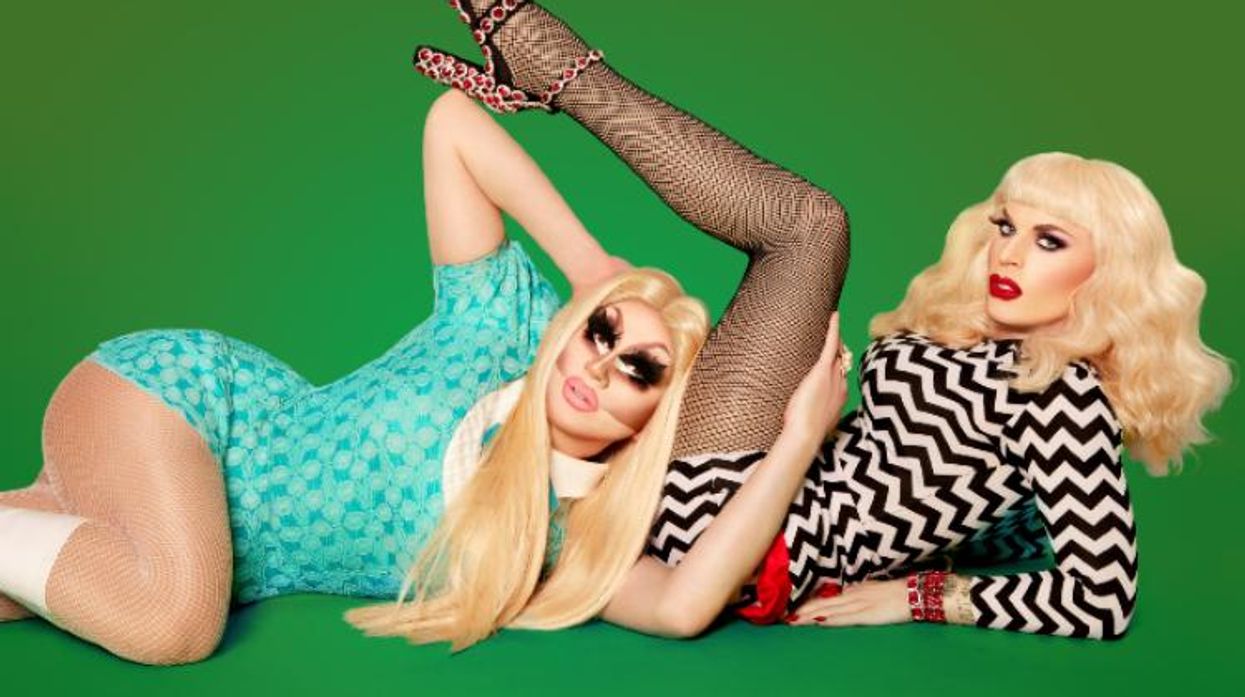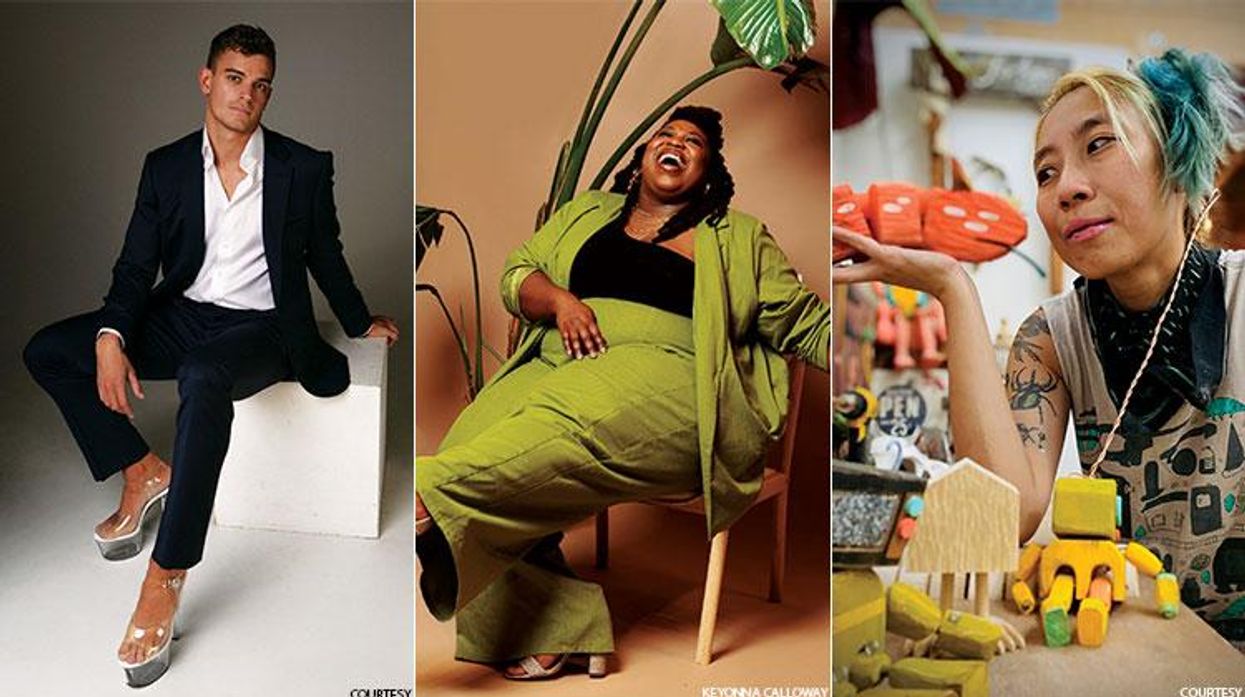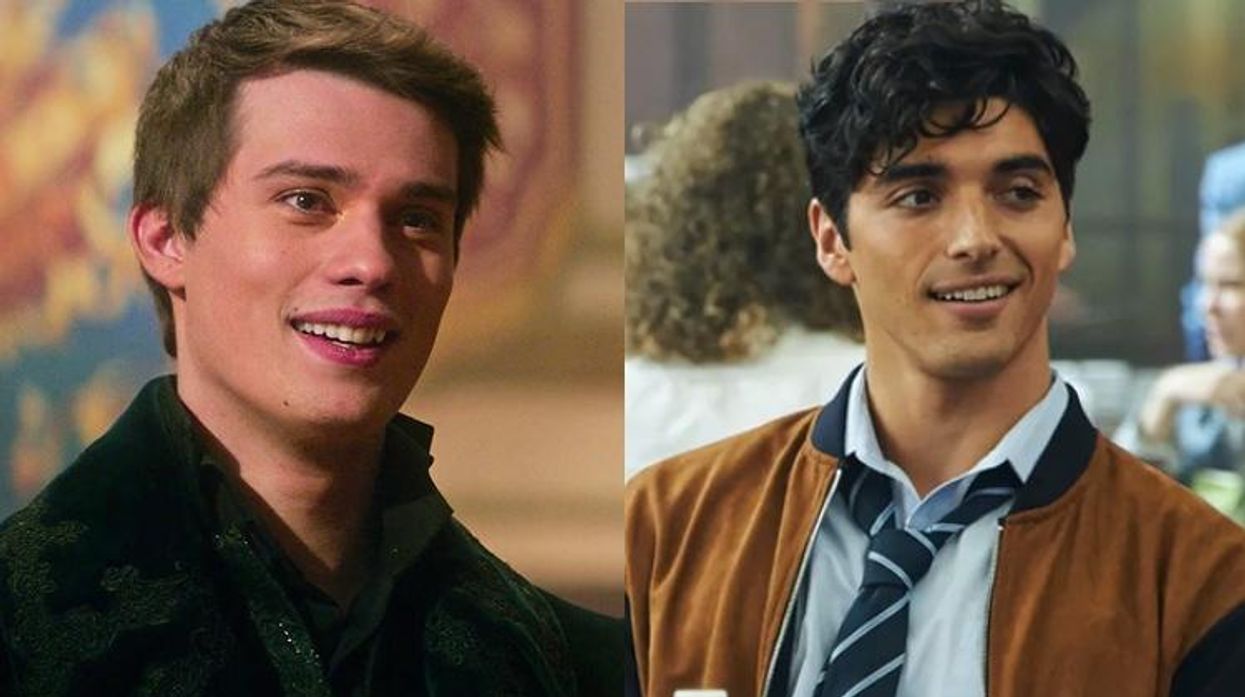In Who is Vera Kelly?, Rosalie Knecht performs the seemingly effortless sleight-of-hand you'd expect from any talented spy. The smart, politically deft Cold War caper, out now from Tin House, is masquerading as a fast, exciting page-turner right from its first pages depicting Vera's teenage rebellions in the mid-1950s. But Vera's no Sally Draper--she's stubborn, resourceful, and not particularly invested in denying her own queerness, which she gamely explores in 1960s Greenwich Village while working as a radio engineer. Bored and restless, she is recruited and accepts a CIA assignment that takes her to Argentina on the cusp of a coup.
Related | Turning Life Into Art, A New Novel Reunites Eleanor Roosevelt With Her Lesbian Lover
I met Knecht at an East Village dive bar--exactly the kind of dimly lit, cheaply priced college hangout where Vera might have made contact with a source--where we talked about Knecht's day job as a social worker at a Puerto Rican community organization in New York, the family secrets that helped inspire the book and the real-life international incident she had to tone down to make believable.
What inspired this book? It's so specific in its timing and setting, but it feels very lived in and all the very different pieces fit together.
My mom's dad had worked for the CIA during World War II--when it was called the Office of Strategic Services--and after that. As far as I understand it, he had a non-covert job. The CIA employs a bazillion people, and his job, as it was described to me, was analyzing Soviet radio propaganda broadcasts. There might have been more to that--it's kind of impossible to tell. He had been forced out during the McCarthy era. They turned up the fact that he had written an essay about the Republican side in the Spanish Civil War in order to apply for a grant, which he had received, but it came off as being overly sympathetic, so they pushed him out of the CIA. He also, I think, had a drinking problem, but it's all shrouded in mystery because he died in 1961.
Your mother's childhood was also a bit of a model for Vera, right?
My mom growing up was like this juvenile delinquent--I think that's fair to say, as she was actually adjudicated as a juvenile delinquent. She was this bad kid in an upscale suburb, which was not my life--I was an extremely obedient child in a non-upscale suburb. From there I was interested in the idea of a Cold War spy and what secrets people were walking around with. I went looking for a historical incident where I could locate a story like that, that would work for my purposes. I had a Fulbright scholarship in Argentina, and had lived there for eight months, so I started poking around there.
As a social worker, you've managed to find the only job that might pay you less than being a writer.
I know, why have I chosen to live this way? [laughs] In a creative field, there's always a sense that there's you and a thousand other people who are trying to elbow each other out of the way for one single prize. Social work is not like that. There are as many jobs as there are people willing to do them. Someone's always going to need you. I was looking for something where I don't feel like i'm competing for like, six spots. Plus the idea of having a license to do a job was really appealing.
Another element that feels very natural, though it's actually quite unusual, is that your spy heroine is queer. How did you come to that characterization?
It was gradual. Deciding to go into covert ops is a fairly extreme move, and I needed her to make that choice. Under what sort of pressures would a person make that choice? As a middle-class young woman [in the early 1960s], her avenues to security and independence are extremely limited--she's basically supposed to grow up and get married to a man and that's it. Even if she'd gone to college, the expectation would still have been the same. So her being gay felt like it made sense. It's what pulls her away from her mother and also what pushes her toward taking this life, where she knows she will be isolated but also--I will have my own money and no one can push me around.
But in some ways it exposes her more.
Yes, because in the CIA and covert ops--anything that's compromisable would not be allowed.
Related | Daniel Handler Wants to Be Your Forever Boy
What kind of research did you do into what it was like to be a gay woman at that time?
I read Odd Girls and Twilight Lovers, which did a good job of describing how the scene changed decade by decade. I don't think I realized when I started how important the butch/femme thing was, and how you were presenting in the scene. In a period spy piece especially so much of it is about hiding in plain sight. Is Vera a closeted character? Not really? She's never had a conversation with her mom about it, and she has to be closeted at work, of course, but she's not living as a straight person. One thing about writing a period piece with a female lead is having to acknowledge the limitations of a woman in the workplace in the '60s--but on a practical level, I need her to be able to move around freely and do things. My writing group has people in it who are quite a bit older than me who would say, you're making it too easy. If there's a place where it's anachronistic it would be in that.
How do you describe your sexuality?
I'm straight. That was part of why I was like, I need to make sure that I'm doing this correctly. I came to having this character be gay in this organic way, but I was also like--don't fuck it up! A couple of drafts in, my writing group was like, why is there no scene in a gay bar? I was anxious about doing it wrong in a way that would make it really obvious. They said, relax, and also if you don't do it people are going to feel you withholding. It's New York in Greenwich Village in 1962. They were right. They were like, onward, basically.
The book is so thrilling for having so little violence. You literally put a gun into the book and then it's never actually used. Did you deliberately not want it to be violent?
The CIA is not just this hegemon. People clock in in the morning and out in the evening--that's what my grandfather did. I intended the book to be critical of the CIA, but it's not claws out. The "Dirty War" in Argentina was about a decade later, and I deliberately did not choose that era. It's a whole lot of pain that's other people's pain. So I was avoiding that more violent story. I went back further and picked this rather obscure episode, which was largely bloodless.
As Vera tries to flee Argentina after the coup, things do get much more dramatic. She forces her way onto a small plane with some revolutionaries who stage an independence protest by landing in the Falkland Islands.
That actually happened, but was more insane. A group of people-- including this young woman who Victoria was based on--were all obsessed with the Falkland Islands. They hijacked a commercial flight full of people and made them land the plane, even though there was not an airport at the time. Somehow everyone survived and they were given token jail time because it was a stunt, basically. She's still alive--she's a playwright, and is still writing angry letters to the editor about the Falkland Islands.
Vera has a very open ending in this novel. Is there a next story for her?
I'm writing a sequel. I'm working on the first draft. I decided to pick up the other strand of the noir, which is the private investigator direction. She's working on a case about a Dominican boy whose parents are dissidents and sent their son away to New York to be safe. But they were jailed, and now they don't know where he is. It's set in 1967.
Now, an extract from the novel.
DECEMBER 1959
GREENWICH VILLAGE, NEW YORK CITY
It was around the time I quit my job as a typist with Con Edison that I finally worked up the courage to go into the Bracken. The Bracken was a piano bar in the Village that I had heard of, by reputation, from other girls at the boardinghouse; they were making fun of a new arrival from Texas, who had been going down there to cadge drinks and plates of spaghetti from the dykes who worked for the transit authority. Like many things at the boardinghouse, the Bracken was at once a place that everybody knew about and that nobody would admit to having been to. Twice I walked past the narrow door without going in, and once I hesitated for a few minutes at the end of the block, pretending to be waiting for a bus. I saw women go in and out--some with lipstick on, hair curled and pinned, and some who wore big black shoes and kept their cigarettes tucked be- hind their ears. I saw a few men, too, laughing and joking with their arms around each other.
I had no one to go with me. I couldn't ask Cathy. I had gone with girls at the Barrington School, but that place was a cloister, where the girls romanced each other out of boredom and loneliness as much as real desire. A running joke in the senior class compared these relationships to the arrangements made by men trapped on ships on long ocean voyages. This was different. I was out in the world and I couldn't pretend it was a game anymore. I could have a good time with men, but with women it was different: I was lit up, rattled, consumed.
I chose an evening when Cathy was out on a date with a law student and dressed carefully in our room. I chose a shift that I thought was very chic--it was black and it did something clever with the draping on one shoulder but otherwise refused to call attention to itself, and it made me feel a bit like a French girl, or at least a co-ed at the New School. I looked nice, I thought. I was tall, and my legs were all right.
The Bracken was crowded and noisy, a fog of smoke around half-lit chandeliers. Colored Moroccan lanterns hung over the bar; the banquettes were draped in old velvet, and the wood floor showed through in places where the linoleum had been danced away. I pushed my way to the bar, licking dry lips. A woman whose short hair was combed back with oil stared straight into my eyes, her expression blank, and I let my gaze drop to the floor. The barmaid brought me a gimlet and I edged onto a stool. Beside me, a row of girls in cocktail dresses clung close together, laughing, prodding at the ice in their drinks with straws.
Butch women stood in clusters at the back of the room. While I watched, one woman approached the girls to my right and pushed in deftly among them, ordering a round, dropping a white hand onto the shoulders of the smallest blonde. My drink was empty, and it was hard to catch the barmaid's eye.
The blonde girl next to me, lost in her romance, laughed uproariously and elbowed me hard in the ribs, looking round a moment later with bleary eyes, as if not sure she'd made contact with a real person. "Sorry," she said. She studied me, her eyes narrowing, then turned pointedly away.
At that point I decided to try harder at getting drunk. I caught the arm of the barmaid as she went by, and she looked up, irritated. "Another gimlet, please," I said. Maybe she could see something in my face; her look softened. She mixed the drink and then stepped aside and said something to a woman with a painted-on beauty mark at the end of the bar.
Now I was drunk. The girls on my right had paired up and were dancing near the piano. The man at the keys played "Don't Get Around Much Anymore" with a twelve-inch ivory cigarette holder clenched between his teeth. I smoked a cigarette and then another. The feeling of being invisible stopped being so awful.
When my drink was empty, I drifted unsteadily out to the sidewalk, trying and failing to button my coat. I felt a heaviness that was a step past tears.
"Are you all right?"
I lurched back and squinted. It was the woman with the beauty mark.
"Am I what?" I said, trying to be dignified.
She smirked. She was holding a thin jacket closed. The night had gotten cold. "It's because they think you're a cop," she said. "That's why no one would talk to you."
I must have looked shocked, because she laughed. "I'm not a cop," I said.
"You're not femme enough to be a femme and you're obviously not a butch," she said. "So they think you're a cop."
My coat was hanging open. I looked down at my clothes, my shoes.
"I like your dress," she said. "It's not that it's not a nice dress." She brushed a hair behind her ear. "Are you hungry? There's a place around the corner that sells burgers."
Order Who Is Vera Kelly? now.


